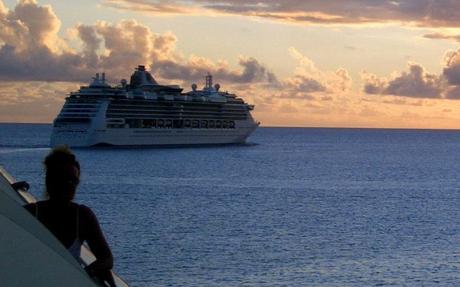
'There will be a mutiny, there will be blood, someone will go overboard. I want to watch."
This isn't a teaser for some Hollywood thriller, but the opening of a video shared on TikTok about a cruise. Royal Caribbean's Ultimate World Cruise, to be precise, an around-the-world odyssey that has become an unlikely online obsession. Since the boat first left port in November, videos of the journey have been viewed millions of times amid a growing cult following.
The scope of the journey is impressive. Over the course of nine months, 27,000 passengers will visit more than 60 countries on all seven continents. There are four main sections of the cruise - North and South America, Asia Pacific, Middle East and Europe - split into 17 legs. Passengers can choose to take part in one of the sections, mix and match the 17 stages, or stay for the duration. Those who signed up for the full shebang will have parted with between $60,000 (£47,286) and $118,000 (£92,996).
The sheer length and cost of the cruise have made it a curious phenomenon. Yes, world cruises are nothing new - the very first one left New York in 1922 - but this one has floated to the top of social media algorithms like a benign iceberg and inevitably lurks in people's feeds regardless of any previous interest in cruising .
That lack of interest might be the point. While the details of the cruising are unlikely to be exciting, the possibility of close-quarters conflict - with nowhere to escape - gives it all a reality TV edge. There are also risks involved, and not just from storms and seasickness. Last year, a Cincinnati resident made headlines after selling her home for a world cruise that was subsequently canceled. Surely the Royal Caribbean trip would be full of drama?
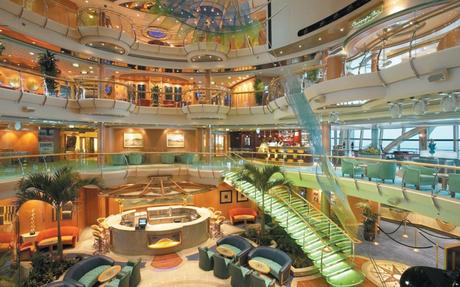
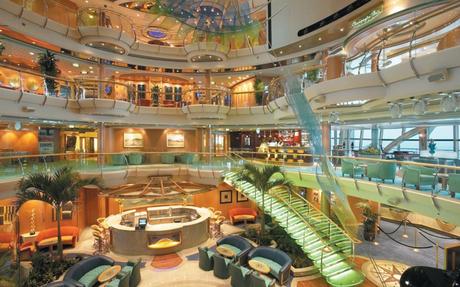
Something of a micro-industry has emerged to document the journey. There are passengers who post daily updates on TikTok and Instagram, describing life at sea. But there are also dryland commentators offering analysis. People are diligently checking off items on a world cruise bingo card, hoping for a Covid outbreak or a shock pregnancy.
The story continues
A month later, the much-vaunted chaos has boiled down to buffet-side rudeness and false claims of swinging - but people are still hoping for histrionics.
Amike Oosthuizen, a South African influencer, is not surprised by the online interest. She and her family have been booked for the cruise since 2021. "I've always wanted to travel the world," she says. "And the cruise is a great way to do that because you have your cabin, you have your own space and you don't have to fly between destinations. People want to see your routine, how you live for nine months.
Her favorite stop so far is Antarctica - which she says was "magical" - and she is positive about the conditions on board.
"I think there are a few [social media content] creators exaggerate things," she says. "And others - those who aren't even on the ship - are taking this opportunity to grow their accounts by creating fake drama."
Amike may not have encountered anything dramatic, but dozens of videos are still posted. Cruise expert Emma Le Teace noted: "People complain that others get special treatment because they are loyal to cruise lines [status]. That may be news to them, but in the cruise world it is quite normal.
'Do they treat people without loyalty as second-class citizens? I don't think so, but the people in the videos seem very surprised."
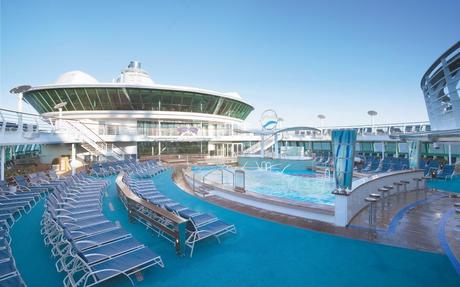
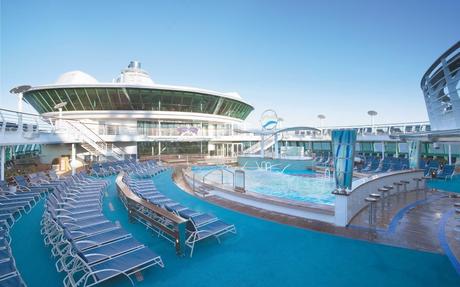
For at least some home viewers, the "reality show" aspect has prioritized passengers over seat. But human melodrama has diminished somewhat compared to the natural world. Just a few weeks later, the cruise passed through Drake Passage, a waterway between Antarctica and Chile that is subject to notoriously tumultuous conditions. Videos posted online showed the ship hurtling through choppy waters.
There was some suggestion that the 'show' might also end early. Rumors surfaced online that, due to the ongoing threat to shipping in the Red Sea, the entire route would not be possible. Some ships, such as those from Viking Cruises, have changed their port calls and the Ultimate World Cruise hopes to continue.
Yet the online audience remains enthusiastic - possibly because of the evolving nature of the 'cast', which changes with each part of the itinerary. A recent favorite is TikToker Marc Sebastien, who was sponsored by a division of publisher Simon & Schuster to join for an 18-day period.
Clips posted to his TikTok account show "alliances" between cabins and on-board hijackings, including a video of him "stealing" a chunk of Antarctic ice. In another he complains that "non-stop music is pumped into every room, every hall, every dining room you enter." Together with other makers, he also provides detailed information about the number of missed ports and unplanned days at sea - an insight that you usually do not get from promotional material.
He has also apparently been scolded for 'bad behaviour' on the ship, appearing to have been reprimanded for being late for a restaurant booking. In another, he is removed from a private lounge while making a live video, later being called into guest services, aka "the director's office".
The phenomenon has certainly presented holidays at sea to a new audience. Typical cruise passengers are in their 50s or 60s. Most TikTok creators are between 18 and 34 years old. Furthermore, with their high ticket prices and long-term commitments, world cruises are typically out of reach for younger demographics.
Those posting videos include the crew on board, as well as a couple who pride themselves on spending their children's inheritance. Then there are people like Jenny Hunnicutt, who works remotely and travels full-time.
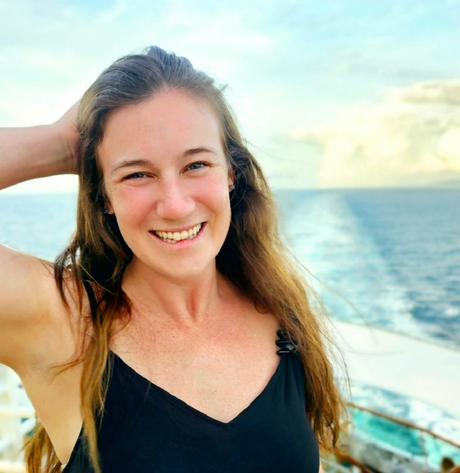
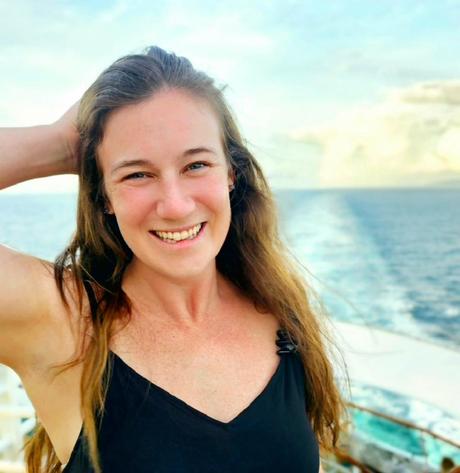
"This cruise was the catalyst for changing our lives," said Hunnicutt, who with her husband booked tickets for the Royal Caribbean voyage two years ago. "We ended up selling everything: our apartment, our cars, a lot of our stuff like furniture and clothes. And then we moved to a camper."
While she still works remotely, Hunnicutt now also documents life on the cruise.
"Talking about a cruise like this can feel like bragging," she says. "I never want to convey that. So the fact that we have received positive responses means a lot. People say they are grateful that they can have this experience through us."
While interest in the cruise may be starting to wane, Emma Le Teace believes the attention will ultimately prove beneficial for the industry. Although she has a warning for beginners. "A trip around the world is very much a sophisticated cruise. Most people have done quite a few before taking a world cruise. I would recommend people start with a seven-night cruise."
As for the influencers? "I think it will be difficult to return to everyday life," says Amike. "This is everyday life now."
